featured
Rhode Island Bills To Restrict Hemp THC Drinks Ignore Science And Current Regulations (Op-Ed)
Published
6 hours agoon

“Products that meet intoxicating thresholds should be sold in dispensaries, and products that do not should be available through licensed CBD consumable retailers.”
By Mike Simpson, Lovewell Farms via Rhode Island Current
As co-founder of Rhode Island’s only U.S. Department of Agriculture (USDA) organic hemp farm, and the largest outdoor cannabis farm in the state, I’ve spent the last eight years helping build the hemp industry from the ground up.
At Lovewell Farms, we’ve operated under one of the strictest regulatory frameworks in the country, subject to licensing, batch testing, tetrahydrocannabinol (THC) limits, secure packaging requirements and product traceability. Yet two recently proposed bills, H6056 and H6270, would cut licensed hemp farms like ours out of the very market we helped establish.
These bills, introduced by Democratic Reps. Jacquelyn Baginski of Cranston and Scott Slater of Providence, aim to regulate the sale of hemp-derived beverages containing delta-9 THC, the compound most commonly associated with cannabis intoxication.
Slater’s bill would specifically eliminate the sale of such beverages and drink mix powders in Rhode Island, unless these products are specifically included in the state’s cannabis laws. The bills misrepresent both the science behind these products and the legal infrastructure already in place.
During a recent House hearing, Rep. Baginski stated, “I was surprised to learn that hemp-based THC products are also available in the marketplace and largely sold unregulated…at any establishment with a retail sales permit. That could be a convenience store, a hair salon, a gas station, anywhere.”
Respectfully, this is inaccurate. In Rhode Island, consumable hemp products must be produced by licensed handlers and tested by certified labs. They are subject to strict limits on THC content, comprehensive labeling standards, and age restrictions. If some products are being sold outside these rules, that’s a failure of enforcement, not evidence of an unregulated system.
Rep. Slater’s testimony in support of his bill, which would effectively ban all hemp-derived THC beverages unless sold through a dispensary, also included misleading claims. He asserted that “the hemp-derived THC products are now being sold outside the regulated cannabis system with minimal oversight, including limited testing, weak labeling, no seed-to-sale tracking as well as avoidance of cannabis taxes.”
This characterization erases the work of licensed hemp producers who follow every requirement the state imposes, many of whom, like us, already distribute specific products through dispensaries and operate with full compliance under existing cannabis laws.
Slater went on to say that allowing hemp beverages undermines Rhode Island’s cannabis cultivators, whom he described as his constituents. “I really find it unfair that as soon as this market has started that we’re trying to undermine them…and allowing folks that found kind of a loophole with this synthetically altered hemp in drinks…without going through the same framework that everyone else has.”
But our farm has always followed the framework. There is no loophole for us, just increasing restrictions on products we’ve made legally, safely and transparently for years.
Both bills ignore a crucial scientific fact: Not all hemp products are intoxicating.
Our full-spectrum gummies and vape cartridges, for example, often contain a CBD-to-THC ratio of 25:1 or higher. Peer-reviewed research shows that products with a 15:1 ratio or greater are effectively non-intoxicating, as the CBD counteracts the effects of THC. These products are designed for stress, sleep and inflammation support, not intoxication. Lumping them together with high-potency THC beverages from out of state is scientifically inaccurate and economically harmful.
What’s also troubling is that these bills would hand control of hemp beverage sales to either liquor stores or cannabis dispensaries, while excluding the very farms that have driven the state’s hemp market since 2018.
Rep. Baginski says she wants to “create a new safe marketplace for hemp THC beverages,” but the safest and most transparent path is the one we already have: Products that meet intoxicating thresholds should be sold in dispensaries, and products that do not should be available through licensed CBD consumable retailers. That distinction already exists under current state law.
Rhode Island can and should regulate cannabinoids based on potency, ratios and public health risk. But it must do so with accuracy and fairness. Hemp farmers have invested many years and many dollars into building compliant, small-scale businesses rooted in sustainable agriculture and community health. We are not the problem, we are part of the solution.
My hope is that lawmakers will revisit these proposals and work with, not around, the people who have spent years getting it right. Hemp regulation should be based on science and equity, not stigma or disinformation.
Mike Simpson is the co-founder of Lovewell Farms, Rhode Island’s only U.S. Department of Agriculture (USDA) organic hemp farm. He is also a historian, educator and longtime advocate for policy reform. He was previously deputy director for Regulate Rhode Island and an initiative coordinator for Marijuana Policy Project in Maine. He now lives in Providence and farms in the village of Hope Valley in Hopkinton.
This story was first published by Rhode Island Current.
Only One European Country’s Cannabis Policy Is Actually Undermining The Illicit Market (Op-Ed)
Photo courtesy of Brendan Cleak.

Author: mscannabiz.com
MScannaBIZ for all you Mississippi Cannabis News and Information.
You may like
-
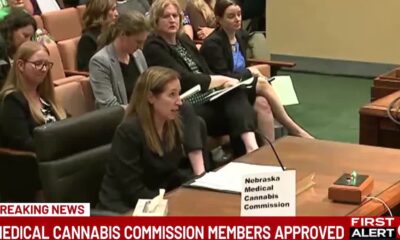

Lawmakers approve governor’s picks for Nebraska’s new Medical Marijuana Commission
-
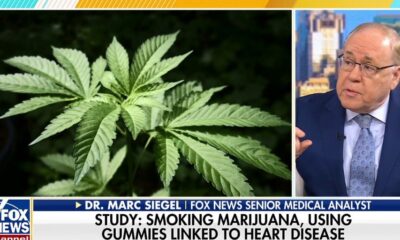

Smoking marijuana, using gummies linked to heart disease in new study
-


Ohioans can soon buy over twice as much nonmedical marijuana
-


Video Cannabis use on the rise among seniors study shows
-
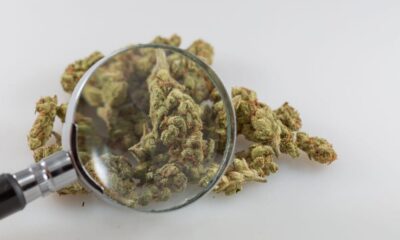

Missouri Officials Will Begin Unannounced Marijuana Dispensary Visits For New Product Testing Initiative Next Month
-


Gov. Josh Stein launches cannabis task force, seeking to regulate THC and study pot legalization in NC
featured
Missouri Officials Will Begin Unannounced Marijuana Dispensary Visits For New Product Testing Initiative Next Month
Published
7 hours agoon
June 8, 2025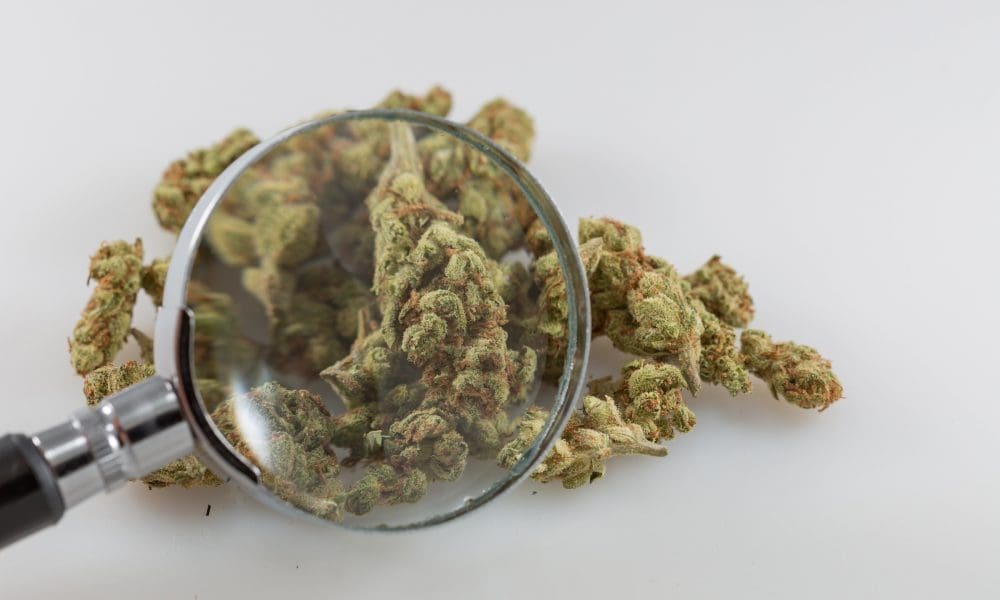
“The challenges in regulating and relying on for-profit cannabis testing labs is one of the most discussed challenges in the national cannabis regulatory community.”
By Rebecca Rivas, Missouri Independent
State cannabis regulators will begin their first attempt next month to double check the work of licensed testing labs tasked with ensuring the safety of Missouri marijuana products.
Starting July 1, staff with the Division of Cannabis Regulation will arrive unannounced at dispensaries and collect about 50 products a month off the shelves. They’ll take them to the Missouri State Public Health Reference Laboratory to be tested for things like mold, pesticides and a whole range of other things.
Ryan Bernard, the division’s testing and research unit manager, said the unannounced sampling has been in the works for a while as a way to add an extra level of compliance. The division, Bernard said, isn’t expecting to find problems.
“We won’t know until we see the data,” Bernard said. “I have full faith and confidence in our testing licensees that they’re testing according to rule as it’s been outlined.”
However, national testing lab experts told The Independent that Missouri’s regulators might be shocked at the results.
“Shelf testing has not gone well in any state that I know of, especially if it’s just starting,” said Josh Swider, vice chair of the cannabis working group for American Council of Independent Laboratories. “It will be very telling very fast.”
Swider pointed to a citation in Arizona in April of a cannabis lab, where the state found more than a dozen alleged “deficiencies” including problems with the lab’s potency testing and pesticide and microbial detection methods.
Swider called the levels of pesticides on the Arizona products “sickening.”
“But this is what you’re seeing around the country,” said Swider, co-founder and CEO of Infinite Chemical Analysis Labs in San Diego. “Regulators are starting to enforce. They’re realizing an issue that’s been systemic for a long time.”
Other common issue Missouri regulars might also find, he said, are inflated levels of THC on products.
Regulators previously talked about conducting a “round robin” testing, where the state’s certified testing labs would double check each other’s work under the state’s instruction. Amy Moore, director of the Division of Cannabis Regulation (DCR), told lawmakers in 2023 that this additional testing rule was “critical.”
“The challenges in regulating and relying on for-profit cannabis testing labs,” Moore told lawmakers at a 2023 committee hearing, “is one of the most discussed challenges in the national cannabis regulatory community.”
However, the state never ended up getting the process going for a variety of factors, Bernard said, so the unannounced samples will be the regulators first attempt at a testing backstop.
Lawmakers began allocating money for this kind of sampling to be tested at the state laboratory in the fiscal year that began on July 1, 2024 with $3.8 million. Most of it went unspent because the cannabis testing methods were “still in the process of being implemented,” according to state budget documents. Another $2.4 million was allocated for this fiscal year ending on June 30, and it’s unclear how much of it has been spent.
Bernard couldn’t speak on the budget for testing, he said, because the division and state lab budgets are “totally separate.”
“Our operating budget is DCR only,” he said. “State public health labs is theirs.”
The lab will receive another $2.4 million for the fiscal year beginning July 1.
Swider said a standard test at a Missouri cannabis lab costs about $400. With the $2.4 million the lab is allocated to conduct 600 tests a year, it would put that rate at $4,000 a test.
“That’s not good,” he said.
It would take one employee in Swider’s lab to leisurely do 50 tests in a week, he said, but 50 in a day is doable.
Bernard said sampling 50 products out of more than 500,000 product tags is “not even close” to being representative of the market, but he called this a “very much preliminary” start.
Bernard has been working closely with the state public health lab, he said, to build the infrastructure for cannabis testing and they’ve had some “hold ups.”
“[The state lab has] experienced grant-funding delays and and then back orders related to potential tariffs,” he said. “They’ve had equipment failures…so this starting point number will get us to a point where we can start stabilizing the amount they need to purchase compared to the amount that I can sample.”
The goal is to get to a representative sample size as soon as possible, he said.
At an MJ Unpacked cannabis conference in November, concerns were raised among testing experts about the fact that 82 percent of Missouri’s cannabis testing is conducted at one licensed lab, Greenway Magazine reported. And that lab catches fewer problems with mold compared to other Missouri labs and those across the country.
At the November panel, information obtained through a Sunshine request revealed that the lab referred to as “Lab D” reported a failure rate for Aspergillus—a mold that poses significant health risks— roughly 8 times lower than the national average.
The state’s other labs had a failure rate of 3.3 percent, which is aligned closely with the national average of 3.8 percent.
Lab D’s failure rate was just under 0.5 percent.
The information raised questions about whether the mold was adequately being checked. However, Bernard said those results didn’t raise any alarm for him.
“Everybody’s being held to the same standards as far as testing is concerned and their ISO accreditation,” Bernard said. “Without doing further investigation, I have confidence that the industry is testing appropriately.”
This story was first published by Missouri Independent.

Author: mscannabiz.com
MScannaBIZ for all you Mississippi Cannabis News and Information.
featured
Proposed Massachusetts Marijuana Reforms Represent An Important Step Forward (Op-Ed)
Published
1 day agoon
June 7, 2025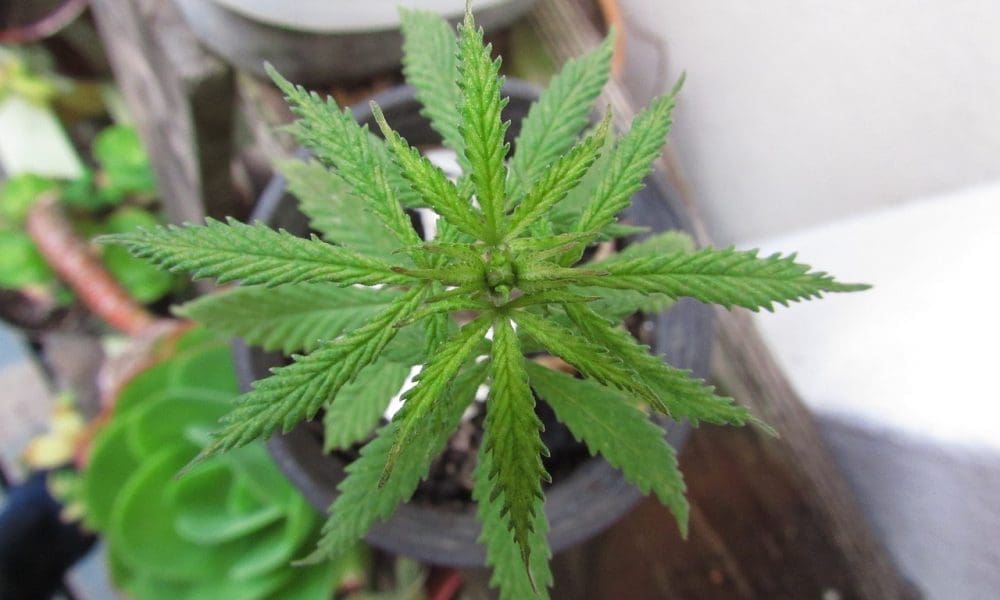
“This bill offers something we have not seen in a long time—a policy that actually reflects the realities of running a cannabis business in today’s market.”
By Payton Shubrick, Gyasi Sellers, Tito Jackson and Dennis Benzan, CommonWealth Beacon
We are a group of owner-operators of minority-owned, women-owned, social equity and economic empowerment cannabis businesses from across the Commonwealth and have deep concern about our ability to survive under the currently outdated laws and regulations.
Massachusetts once stood at the forefront of cannabis equity reform. We were the first state to create a social equity program. However, businesses like ours urgently need relief and support to survive in an incredibly challenging market.
We’ve built businesses that hire from our communities, reinvest locally and model what social equity and economic empowerment can look like, but we’re barely surviving due to oversaturation and oversupply. We need laws and regulations that enable us to thrive—not just survive—and give us a fair shot at growth and sustainability.
With the current limit of three licenses for any owner, we cannot structure models for growth or provide financial security for small owner-operated businesses. We also cannot raise capital based on the negative narrative around the market. The numbers don’t work unless you’re a vertically integrated or multi-state operator with better profit margins in neighboring states.
That’s why we support the recent redraft legislation, titled An Act Modernizing the Commonwealth’s Cannabis Laws, released by the House members of the Joint Committee on Cannabis Policy. We commend House leaders for recognizing the harsh reality that many of us operating businesses in Massachusetts are closing, and for putting forth changes that will give us breathing room and a future.
This bill offers something we have not seen in a long time—a policy that actually reflects the realities of running a cannabis business in today’s market.
One of the most important reforms it includes is the gradual increase of the retail license cap from three to six. Lacking the ability to scale, we’re permanently disadvantaged in every negotiation with landlords, investors, and suppliers. The current cap stunts our businesses before they can grow.
Without bankruptcy protections, some of our businesses will need to go into receivership, and some may even need to file for personal bankruptcy—losing homes and livelihoods. Increasing the license cap gives struggling businesses the option to sell and protect personal, family and community assets.
The bill also embraces equity joint ventures and employee ownership, paving the way for new investment dollars to come back into the local cannabis market. This gives social equity businesses a path to new sources of capital to stabilize and scale their businesses while traditional sources are still out of reach.
Critical guardrails requiring audits of business ownership and strict enforcement of the license caps are also included in the bill. These reforms ensure that changes to the licensing structures will uplift the people and communities they were meant to benefit.
The legislation also increases the adult-use possession and purchase limits from one ounce to two—which is seemingly small, but incredibly impactful. It is a necessary step that will help consumers access safe, tested products, boost legal sales and chip away at the illicit market that undercuts us.
Finally, this bill ends the mandatory vertical integration requirements in the medical cannabis program. We need to allow all small and disadvantaged businesses to participate in the medical market without requiring them to control the whole cannabis supply chain or demonstrate that they have capital resources of at least half a million dollars.
For medical patients in cities like Boston and Springfield, vertical integration requirements are a huge barrier to access to medical cannabis, which is sold tax-free. This change opens the door for those purchases for those with medical needs in communities with large populations with limited disposable income.
This legislation is not a perfect bill, but it delivers meaningful, immediate and enforceable reforms that will help small, minority-owned cannabis businesses survive today and grow tomorrow.
We didn’t enter this industry to be shut out from realizing the original intent of the first social equity and economic empowerment programs in the nation. We entered it to lead and build businesses that reflect our communities and repair decades of harm. This bill gives us a chance to do that.
Payton Shubrick is CEO of 6Bricks, a family-owned adult-use dispensary in Springfield. Gyasi Sellers is founder of Treevit, a licensed delivery operator based in Athol. Tito Jackson is CEO of Apex Noire, an adult-use dispensary in Boston. Dennis Benzan is co-owner of Western Front, which operates three adult-use dispensaries across Chelsea and Cambridge.
This article first appeared on CommonWealth Beacon and is republished here under a Creative Commons Attribution-NoDerivatives 4.0 International License.![]()

Author: mscannabiz.com
MScannaBIZ for all you Mississippi Cannabis News and Information.
featured
Texas Lawmakers Passed Bills To Expand Medical Marijuana, Ban Hemp And Support Psychedelic Research This Session
Published
1 day agoon
June 7, 2025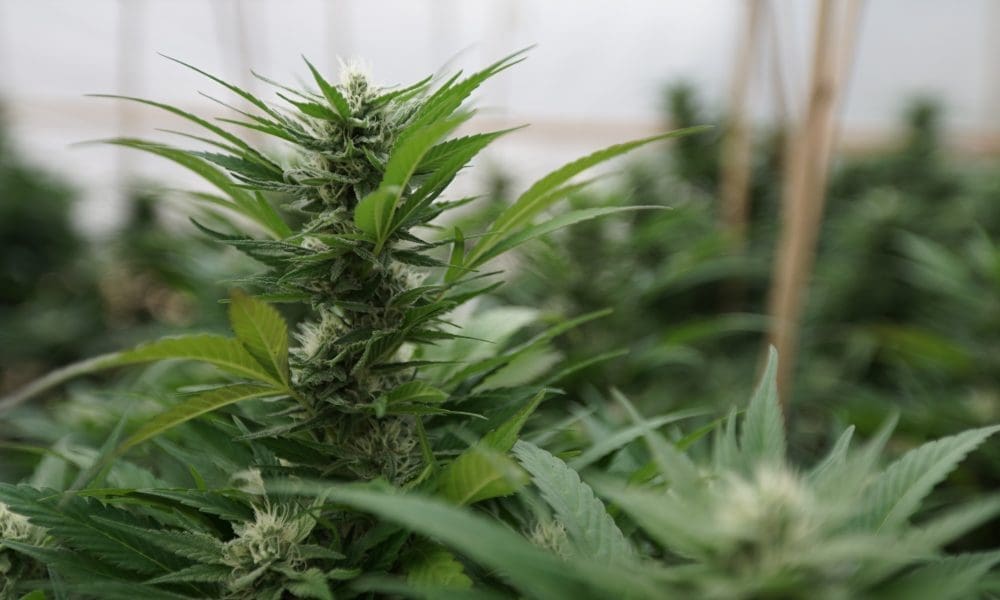
Lawmakers reasoned that removing hemp options from the general public could be offset by expanding the medical marijuana industry.
By Stephen Simpson, The Texas Tribune
Texas lawmakers this year heavily focused their drug policy agenda on banning tetrahydrocannabinol, or THC, products in the state.
Senate Bill 3, which prohibits the possession of consumable hemp products that contain any synthetic cannabinoid, often known as delta-8, was a priority for Lt. Gov. Dan Patrick (R), who often denounced the effects of the drug on children. As a concession of sorts to veterans and THC users with chronic conditions, House Bill 46 also passed, expanding the state’s medical marijuana program by providing more products to users and adding more qualifying conditions.
Both bills found themselves tied together as lawmakers reasoned that removing hemp options from the general public could be offset by expanding the medical marijuana industry.
While the focus was primarily on THC this session, Texas quietly passed Senate Bill 2308, which would create a state-funded consortium to research a psychedelic drug called ibogaine. The clinical trials would test whether ibogaine is a viable treatment for substance use disorders and other mental health conditions.
However, multiple bills that could have prevented overdose deaths failed to gain traction this year. House Bill 1644, for example, would have removed testing strips for fentanyl and xylazine, a veterinary sedative also known as “tranq,” from the list of banned drug paraphernalia.
The hemp debate
In 2019, Texas lawmakers embraced the potential to boost the state’s agricultural market by legalizing hemp products derived from cannabis plants with less than 0.3 percent of THC.
Six years later, SB 3 intends to shut down the $8 billion hemp industry and cut its estimated 50,000 jobs when the ban takes effect in September.
Critics say the hemp industry has exploited a loophole in the 2019 law to the tune of more than 8,000 retailers now selling THC-laced edibles, drinks, vapes and flower buds.
The proposed law would ban consumable hemp products that contain any synthetic cannabinoid, often known as delta-8. Non-intoxicating and non-psychoactive CBD or CBG would remain legal.
People found in possession of a product with those intoxicating cannabis compounds could face a fine of up to $500. Higher fines and jail time would be possible for repeat offenders.
Hemp industry leaders and advocates have denied any harmful intentions and are in favor of regulations on the industry rather than a ban.
Aging Texans, veterans, and parents of children with mental illness or special needs have spoken out about the benefits of hemp, including the ease of access, the variety of products available to them and the lower price. In contrast, concerned parents demanded a ban because they fear children would be harmed from recreational use.
The Texas Hemp Business Council reported that it delivered 5,000 letters to Abbott’s office earlier this week, along with a petition signed by over 120,000 people, urging the governor to veto the bill. Abbott has until June 22 to decide on a veto.
Expanding medical marijuana
In Texas, licensed medical cannabis providers must house all operations—including cannabis cultivation, processing, extracting, manufacturing, testing and dispensing—under one roof.
State regulations also prohibit inventory storage of medical cannabis products in multiple locations, so products must be distributed from the central dispensary. Any prescriptions scheduled for pickup outside the central dispensary must be driven daily to and from the pickup location—sometimes hundreds of miles round-trip.
This has made their products more expensive and limited where the medical marijuana program can reach, hampering the small medical cannabis market in Texas.
HB 46 aims to help by expanding the program to include more popular products such as prescribed inhalers and vaping devices, allow off-site storage and add nine dispensers, bringing the total to 12. It also adds traumatic brain injuries, chronic pain, Crohn’s disease and terminal illnesses to the list of qualifying conditions.
The first three dispensers will be selected from the previously submitted 2015 list of dispensers and then made available to the public.
The expansion of the medical marijuana program will go into effect in September if Abbott signs it into law.
Psychedelics research
Among drug-related bills that received less attention was SB 2308, which will make Texas a hub for ibogaine-related research, development, treatment, manufacturing and distribution. This will be accomplished by creating a consortium that includes higher education institutions, drug developers, nonprofits, and other stakeholders to secure U.S. Food and Drug Administration approval for a treatment.
Ibogaine is a psychedelic found in the roots of the iboga plant, primarily found in Africa, and has been used for centuries during shamanistic rituals due to its ability to induce hallucinations in large doses. The drug has been illegal in many countries, but scientists recently announced a study finding that, in low doses, ibogaine might have beneficial uses to treat addiction, PTSD and brain injuries.
The bill could essentially give Texas a stake in any future revenue that may come from the state developing a medical use for ibogaine.
The program will be funded through a $50 million appropriation from the state’s general fund.
Less emphasis on drug overdose policies
Fentanyl, a potent drug commonly mixed with other substances and has caused the deaths of more than 7,000 Texans in the last six years, is odorless and tasteless, making detection nearly impossible without specialized equipment.
Fentanyl test strips are among the cheapest and easiest ways to prevent overdoses, but for a third time, legislation to legalize them failed in the Senate.
HB 1644, which would have legalized opioid drug testing strips, never got a hearing in the Senate despite passing unanimously in the House.
The main argument against drug testing strips has been that it encourages continued drug use, but advocates deny this claim, saying that once someone is thinking about their safety, it is by the time they are getting close to quitting.
Senate Bill 1732, which would have allowed nurses and physician assistants to prescribe medication-assisted treatment, like methadone and buprenorphine, for opioid use disorders, also never received a committee hearing.
A smaller step lawmakers made to address overdoses comes in House Bill 4783, which requires the Texas Health and Human Services Commission to prepare a report every two years for lawmakers to evaluate the distribution of opioid overdose reversal drugs, like Narcan. The report will be required to create a statewide goal for opioid reversal drugs and include an estimate of insufficiencies in the current supply and a plan to address overdoses in high-risk areas.
This article originally appeared in The Texas Tribune at https://www.texastribune.org/2025/06/06/texas-hemp-marijuana-drugs-policy-legislature/.
The Texas Tribune is a member-supported, nonpartisan newsroom informing and engaging Texans on state politics and policy. Learn more at texastribune.org.
Photo courtesy of Chris Wallis // Side Pocket Images.

Author: mscannabiz.com
MScannaBIZ for all you Mississippi Cannabis News and Information.

Lawmakers approve governor’s picks for Nebraska’s new Medical Marijuana Commission

Smoking marijuana, using gummies linked to heart disease in new study

Ohioans can soon buy over twice as much nonmedical marijuana

Rhode Island Bills To Restrict Hemp THC Drinks Ignore Science And Current Regulations (Op-Ed)

Video Cannabis use on the rise among seniors study shows

Missouri Officials Will Begin Unannounced Marijuana Dispensary Visits For New Product Testing Initiative Next Month

Gov. Josh Stein launches cannabis task force, seeking to regulate THC and study pot legalization in NC

Musk’s 'Govt Efficiency' Ends In MAYHEM: Cockroaches, Marijuana & Wiped Research At USIP

Deltona considers ban on new medical marijuana dispensaries

New recreational marijuana shop in Moorhead nearly two weeks since opening

Law enforcement say testing drivers for marijuana use presents challenges

Louisville man caught with 15 pounds of THC edibles, marijuana wax in Sumner County

How Minnesota law enforcement agencies are handling marijuana on the roads

New petition aims to get marijuana legalization on Florida's 2026 ballot

Texas reined in recreational THC for more medical marijuana this legislative session

400+ bags of marijuana seized after high-speed I-78 chase

Man arrested in Columbia County after over 45 pounds of marijuana found in vehicle

Video: New state prepackaging mandate affecting dispensaries and marijuana grow operations | News

Cannabis industry waiting to see if July tax hike will be halted or not

Texas cannabis industry faces collapse as THC ban heads to governor’s desk

Gov. Stein assembling cannabis task force

Gov. Stein forms advisory council to regulate cannabis products in North Carolina

Springfield takes action against illegal ‘Gas Station Weed’

Proposed NC bill regulates hemp-derived products while Governor announces new cannabis advisory council

Alert: Department of Cannabis Control updates data dashboards with full data for 2023

5 best CBD creams of 2024 by Leafly

Connecticut Appoints The US’s First Cannabis Ombudsperson – Yes there is a pun in there and I’m Sure Erin Kirk Is Going To Hear It More Than Once!

Free delta-9 gummies from Bay Smokes
New Study Analyzes the Effects of THCV, CBD on Weight Loss

EU initiative begins bid to open access to psychedelic therapies

Mississippi city official pleads guilty to selling fake CBD products

May 2024 Leafly HighLight: Pink Runtz strain

Curaleaf Start Process Of Getting Their Claws Into The UK’s National Health System – With Former MP (Resigned Today 30/5/24) As The Front Man

Horn Lake denies cannabis dispensary request to allow sale of drug paraphernalia and Sunday sales | News

Press Release: CANNRA Calls for Farm Bill to Clarify Existing State Authority to Regulate Hemp Products

5 best autoflower seed banks of 2024 by Leafly

Discover New York’s dankest cannabis brands [September 2024]

Local medical cannabis dispensary reacts to MSDH pulling Rapid Analytics License – WLBT

Nevada CCB to Accept Applications for Cannabis Establishments in White Pine County – “Only one cultivation and one production license will be awarded in White Pine County”

The Daily Hit: October 2, 2024

6 best CBD gummies of 2024 by Leafly

5 best THC drinks of 2024 by Leafly

Weekly Update: Monday, May 13, 2024 including, New Guide for Renewals & May Board meeting application deadline

5 best delta-9 THC gummies of 2024 by Leafly

People In This State Googled ‘Medical Marijuana’ The Most, Study Shows

PRESS RELEASE : Justice Department Submits Proposed Regulation to Reschedule Marijuana

Press Release: May 9, STIIIZY and Healing Urban Barrios hosted an Expungement Clinic & Second Chance Resource Fair

Thailand: Pro-cannabis advocates rally ahead of the government’s plan to recriminalize the plant
Trending
-

 California Cannabis Updates1 year ago
California Cannabis Updates1 year agoAlert: Department of Cannabis Control updates data dashboards with full data for 2023
-

 best list10 months ago
best list10 months ago5 best CBD creams of 2024 by Leafly
-

 Breaking News1 year ago
Breaking News1 year agoConnecticut Appoints The US’s First Cannabis Ombudsperson – Yes there is a pun in there and I’m Sure Erin Kirk Is Going To Hear It More Than Once!
-

 Bay Smokes11 months ago
Bay Smokes11 months agoFree delta-9 gummies from Bay Smokes
-

 cbd1 year ago
cbd1 year agoNew Study Analyzes the Effects of THCV, CBD on Weight Loss
-

 Business9 months ago
Business9 months agoEU initiative begins bid to open access to psychedelic therapies
-

 Mississippi Cannabis News1 year ago
Mississippi Cannabis News1 year agoMississippi city official pleads guilty to selling fake CBD products
-

 California1 year ago
California1 year agoMay 2024 Leafly HighLight: Pink Runtz strain

